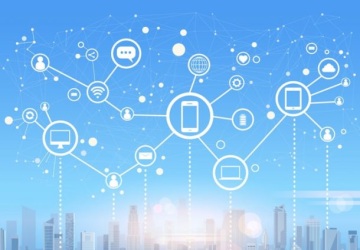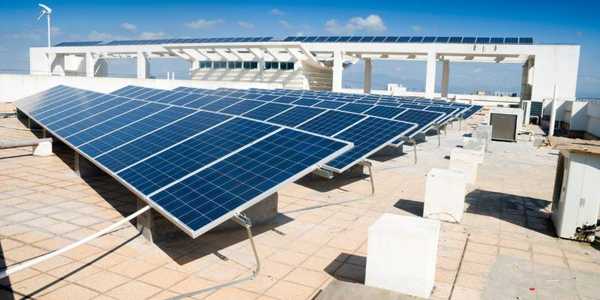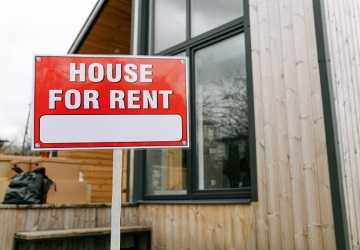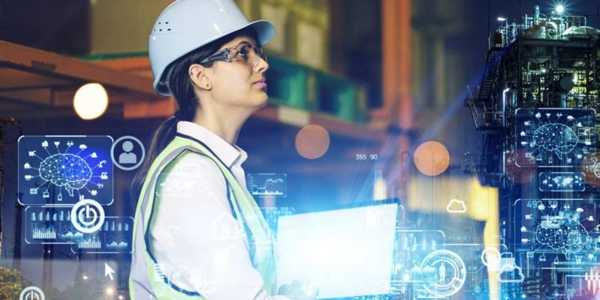With the increasing global urbanization and relentless pursuit of technological advancements, 5G-powered intelligent cities are now becoming more than just a buzzword. They promise to transform the very essence of urban living. Diving into the three pillars of 5G-powered cities - connectivity, efficiency, and innovation - can shed light on their profound implications for our future.
1.A New Era of Connectivity
At the heart of 5G-powered smart cities lies an unmatched level of connectivity that goes beyond the traditional concepts of communication.

·Seamless Internet Access: 5G aims to blanket entire cities with a high-speed internet umbrella. It's not merely about faster downloads or uninterrupted streaming but ensuring a robust connection for an increasing number of devices, from smartphones to interconnected home appliances.
·Real-Time Communication: The low latency characteristic of 5G ensures almost instant communication. Whether video calls without a lag, autonomous vehicles communicating with each other, or emergency services reacting in real-time, 5G is set to redefine our expectations of immediacy.
·Infrastructure Interconnectivity: Beyond personal devices, 5G promises to enhance the interconnection of city infrastructure, from traffic lights to water supply systems, allowing them to communicate and respond to environmental cues effectively.
2.Elevating Urban Efficiency
The adoption of 5G within city frameworks drastically impacts the efficiency of operations and public services.
·More brilliant Traffic Control: Utilizing real-time data from numerous sensors and cameras, traffic can be managed more effectively, reducing congestion and ensuring smoother commutes.
·Enhanced Utility Management: By integrating 5G with utilities, cities can foresee and respond to outages quicker, manage resource distribution efficiently, and even predict maintenance needs before a breakdown occurs.
·Public Safety and Health: Quicker communication means emergency services can react faster. From fires to health emergencies, the prompt flow of information can be life-saving.
3.The Innovation Playground
5G-powered intelligent cities are the epicenter of technological innovation.
·Revolutionizing Healthcare: With 5G, remote surgeries become more plausible. Robotic arms might operate on a patient kilometers distant from a surgeon.
·Education Beyond Boundaries: High-speed connectivity ensures that virtual and augmented reality tools can be harnessed more effectively, paving the way for immersive and interactive learning environments.
·Green Innovations: As sustainability becomes more pressing, 5G can help cities monitor and manage their carbon footprints, optimizing energy consumption and aiding in the transition to renewable energy sources.
·Business and Commerce Reimagined: Beyond just improved logistics and communication, the sheer data processing capability that comes with 5G can allow businesses to harness real-time analytics, offering personalized services and revolutionizing marketing strategies.
4.Potential Challenges and Considerations
While the prospects are promising, there are considerations to bear in mind:
·Security Concerns: The interconnectivity also means potential vulnerabilities. Ensuring a robust cybersecurity framework is imperative.
·Infrastructure Investment: Transitioning to a 5G-powered smart city requires substantial investment in infrastructure, not just in terms of technology but also in training and maintenance.

5.Infrastructure Evolution with 5G
The physical evolution of cities will play a pivotal role as 5G becomes more ubiquitous.
·Intelligent Buildings: With 5G, buildings can be more than just living spaces. They can self-regulate temperature, optimize energy use, and even communicate with other facilities, enhancing efficiency and sustainability.
·Public Spaces Transformation: Parks, recreation areas, and other public spaces can benefit from 5G through enhanced security, interactive and informative kiosks, and real-time environmental monitoring.
·Transport Evolution: Beyond improving traffic management, 5G can propel the widespread adoption of autonomous vehicles, making car-sharing more efficient and potentially reducing the need for large city parking spaces.
6.Societal Impacts of 5G Connectivity
The societal implications of 5G-powered intelligent cities can't be understated. This innovation has the potential to reshape our societal fabric.
·Job Creation: The transition will inevitably lead to the emergence of new job roles – from technicians specializing in 5G technology to professionals focusing on integrating this tech into daily life.
·Digital Divide Concerns: While many will benefit from 5G, there's a risk of widening the digital divide. Ensuring equitable access to technology will be crucial to prevent societal disparities.
·Privacy and Ethics: Intelligent cities' increased connectivity and surveillance capabilities raise ethical concerns. Balancing technological advancements with individual privacy will be an ongoing challenge.
7.Embracing a Greener Future with 5G
Environmental sustainability is a growing concern, and 5G offers tools to combat climate change effectively.
·Resource Management: With enhanced connectivity, cities can monitor and optimize water usage, waste management, and energy consumption in real-time.
·Environmental Monitoring: 5G-powered smart cities can continuously employ vast sensor networks to monitor air and water quality, allowing immediate responses to
environmental threats.
·Promotion of Green Transit: Through efficient traffic management and support for electric autonomous vehicles, 5G can help reduce the carbon footprint associated with urban transportation.
8.Enhanced Consumer Experiences with 5G
The very essence of how consumers interact with businesses, services, and even with each other is expected to transform 5G-powered intelligent cities.
·Retail and Shopping: Imagine walking into a store where augmented reality (AR) powered by 5G allows you to instantly see reviews, alternative colors, sizes, and even virtual try-ons. Retail therapy in such cities could be far more immersive and tailored.
·Entertainment: The entertainment sector, particularly augmented and virtual reality, stands to gain immensely. Picture concerts where the music and visuals are enhanced by AR or theaters where the story is brought to life around the audience using virtual elements.
·Personalized Services: Service providers, whether in food delivery, transport, or home maintenance, can leverage the connectivity of 5G to offer real-time updates, enhancements, and personalization based on consumer data, enhancing the overall user experience.
9.Smart Governance and Civic Management
5G-powered intelligent cities not only benefit consumers and businesses but also hold the promise of transforming governance.
·Real-time Feedback: Municipal bodies can harness 5G to gain real-time feedback on civic issues, allowing for more efficient redressal. From potholes to power outages, immediate data means quicker solutions.
·Public Health Monitoring: In scenarios like disease outbreaks, 5G can be instrumental in monitoring and controlling the spread. By tracking data in real-time, health agencies can pinpoint areas of concern and allocate resources more effectively.
·Transparent Governance: The high-speed connectivity of 5G enables more transparent governance with real-time data sharing, ensuring that citizens are always informed and engaged in civic matters.
Conclusion
5G-powered smart cities are poised to revolutionize urban living, presenting a harmonious blend of connectivity, efficiency, and innovation. As city planners, technologists, and policymakers collaborate, the urban dweller benefits from an environment that's more responsive, intuitive, and forward-thinking. The journey towards such a future may have challenges, but the prospects of what lies ahead make it an exciting path.














